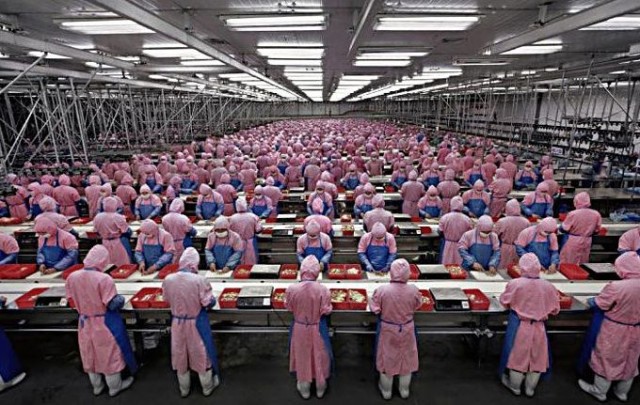
As the trade war between the United States and China escalates, companies are beginning to look for a safe alternative from the economic tussle in other countries. Apple is reportedly planning to invest $1 billion to expand a factory in southern India, where Foxconn, a Taiwanese contract manufacturer assembles iphones for Apple.
A source told Reuters that “there is a strong request from Apple to its clients to move part of the iphone production out of China.” According to the source, Foxconn’s planned investment in the Sriperumbur plant, where Apple’s iphone XR is made some 50 km west of Chennai, will take place over the course of three years.
Foxconn is expected to add some 6,000 jobs at the Sriperumbur plant in Tamil Nadu state under the plan, according to one of the two sources who spoke Reuters on anonymity.
Register for Tekedia Mini-MBA edition 19 (Feb 9 – May 2, 2026): big discounts for early bird.
Tekedia AI in Business Masterclass opens registrations.
Join Tekedia Capital Syndicate and co-invest in great global startups.
Register for Tekedia AI Lab: From Technical Design to Deployment (next edition begins Jan 24 2026).
Taipen-based Foxconn also makes smartphones for China’s Xiaomi Corp, where it operates a separate plant in the southern Indian state of Andhra Pradesh.
India is becoming a darling destination for manufacturers of mobile phone not only because of the US and China trade conflict, but because it offers cheap production cost with a large demographic of consumers.
Apple accounts for about 1% of smartphones sales in India, the world’s second-biggest smartphone market. But the cost of iphones, which is induced by taxes and shipment costs from China, has made Apple devices sacred in India.
Foxconn believes that moving production to India will ease the cost of Apple products and enable more sales. Neil Shah of Hong Kong-based tech researcher Counterpoint said the move will not only make Apple iphones cheaper, it will help the company to export from India.
“With India’s labor cheaper compared with China, and the gradual expansion of its supplier base here, Apple will be able to use the country as an export hub,” he said.
India’s Prime Minister Narenda Modi has been on a “make in India” campaign as part of his efforts to encourage electronics manufacturing in the country.
Last month, India launched a $6.65 billion plan that offers incentives to smartphones makers to establish in the country. The likes of Foxconn and other electronics companies moving to establish plants in India seems to be the best kind of news to the Prime Minister as it would create jobs to upset the country’s employment deficit.
It is becoming a global movement as the call to boycott China increases. The reasons have been piling up, victimizing not only companies of Chinese origin, but others with manufacturing plants in China.
Apart from its trade war with the US, China has been caught up in other controversies that are likely to jeopardize its economic growth, as many nations are now
Playing cautiously in their relationship with the South Asian country.
The boycott movement has been driven by factors bordering on political conflicts, the trade war, 5G infrastructure security concerns and COVID-19 pandemic.
The recent annexation of Hong Kong has aggravated the situation, making many other countries part of the controversy.
The Sino-India border tension came lately to escalate China’s political controversies to involve India. The border conflict between the two countries claimed no fewer than 20 Indian soldiers’ lives. Indian is seeking retaliation through economic retribution involving shunning Chinese goods and services, including tech and social media companies like TikTok.
COVID-19 outbreak also created a dysfunction that has impacted Chinese global supply chain and disrupted its economy. China is no longer a low wage, low regulation emerging economy. The labor cost in China has risen significantly, shifting the attention of companies looking for cheap labor to India and some other Asian countries.
Samsung ended its Chinese mobile phone production in September 2019 due to rising cost of labor, opening the way for other companies to seek refuge outside China.
Apart from having India as a destination, Apple is also considering a move to Vietnam where it intends to set a hardware production plant. A trial in Vietnam is reportedly selected to commence later in the year.
Microsoft is also working to push its hardware production out of China to other Asian countries. China has been its base of hardware manufacturing until now.
Google has asked a manufacturing partner in Thailand to prepare production lines for its smart home products. TikTok is also working to move its headquarters from China in order to distance itself from controversies.
It appears that China is gradually losing its position as the world’s leading electronics manufacturer, and India is positioning itself to be the next hub.



